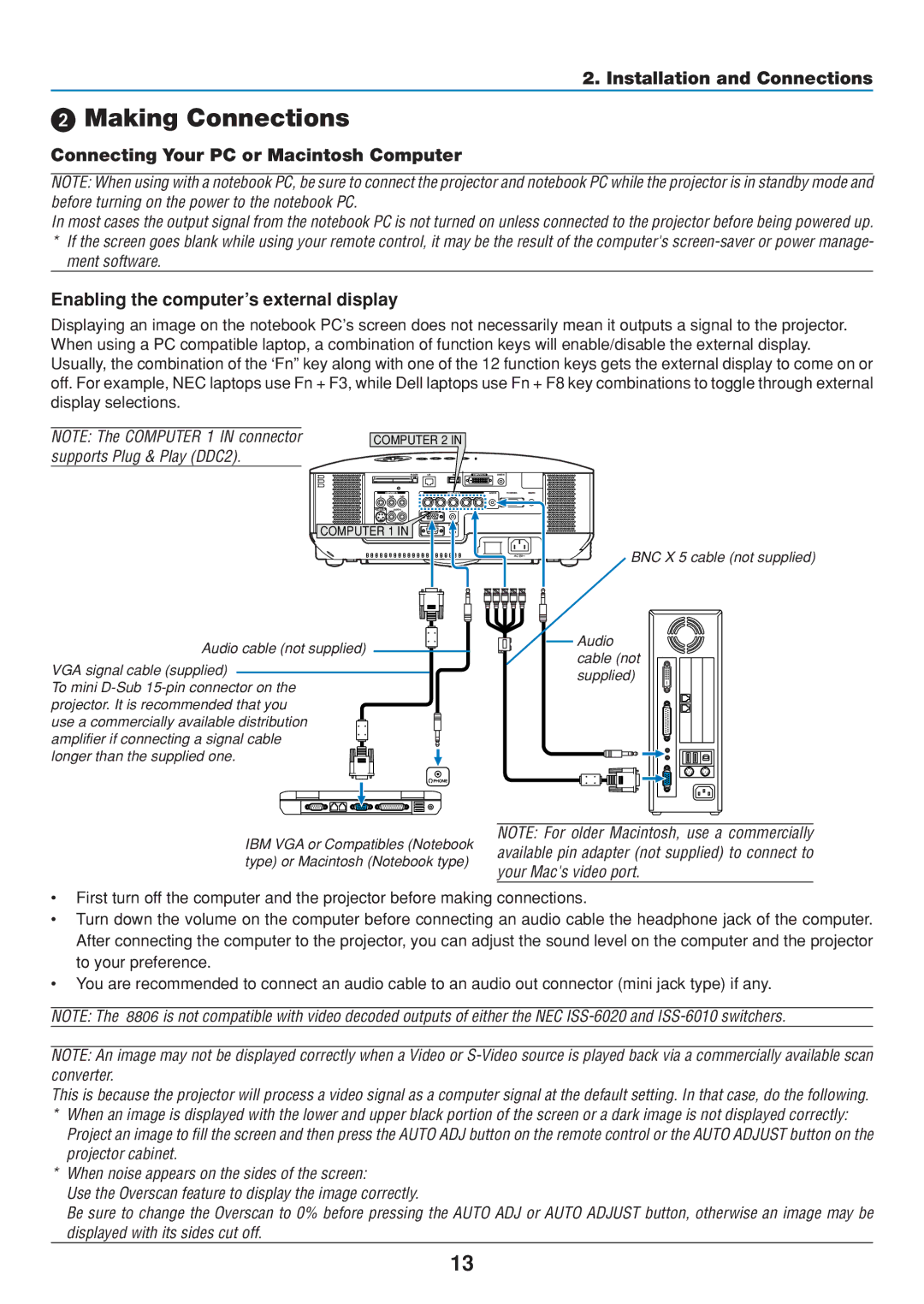
2. Installation and Connections
Making Connections
Connecting Your PC or Macintosh Computer
NOTE: When using with a notebook PC, be sure to connect the projector and notebook PC while the projector is in standby mode and before turning on the power to the notebook PC.
In most cases the output signal from the notebook PC is not turned on unless connected to the projector before being powered up.
*If the screen goes blank while using your remote control, it may be the result of the computer's
Enabling the computer’s external display
Displaying an image on the notebook PC’s screen does not necessarily mean it outputs a signal to the projector. When using a PC compatible laptop, a combination of function keys will enable/disable the external display. Usually, the combination of the ‘Fn” key along with one of the 12 function keys gets the external display to come on or off. For example, NEC laptops use Fn + F3, while Dell laptops use Fn + F8 key combinations to toggle through external display selections.
NOTE: The COMPUTER 1 IN connector | COMPUTER 2 IN |
supports Plug & Play (DDC2). |
|
| COMPUTER 1 IN |
Audio cable (not supplied)
VGA signal cable (supplied)
To mini
use a commercially available distribution amplifier if connecting a signal cable longer than the supplied one.
BNC X 5 cable (not supplied)
Audio cable (not supplied)
![]() PHONE
PHONE
IBM VGA or Compatibles (Notebook type) or Macintosh (Notebook type)
NOTE: For older Macintosh, use a commercially available pin adapter (not supplied) to connect to your Mac's video port.
•First turn off the computer and the projector before making connections.
•Turn down the volume on the computer before connecting an audio cable the headphone jack of the computer. After connecting the computer to the projector, you can adjust the sound level on the computer and the projector to your preference.
•You are recommended to connect an audio cable to an audio out connector (mini jack type) if any.
NOTE: The 8806 is not compatible with video decoded outputs of either the NEC
NOTE: An image may not be displayed correctly when a Video or
This is because the projector will process a video signal as a computer signal at the default setting. In that case, do the following.
*When an image is displayed with the lower and upper black portion of the screen or a dark image is not displayed correctly: Project an image to fill the screen and then press the AUTO ADJ button on the remote control or the AUTO ADJUST button on the projector cabinet.
*When noise appears on the sides of the screen:
Use the Overscan feature to display the image correctly.
Be sure to change the Overscan to 0% before pressing the AUTO ADJ or AUTO ADJUST button, otherwise an image may be displayed with its sides cut off.
13
